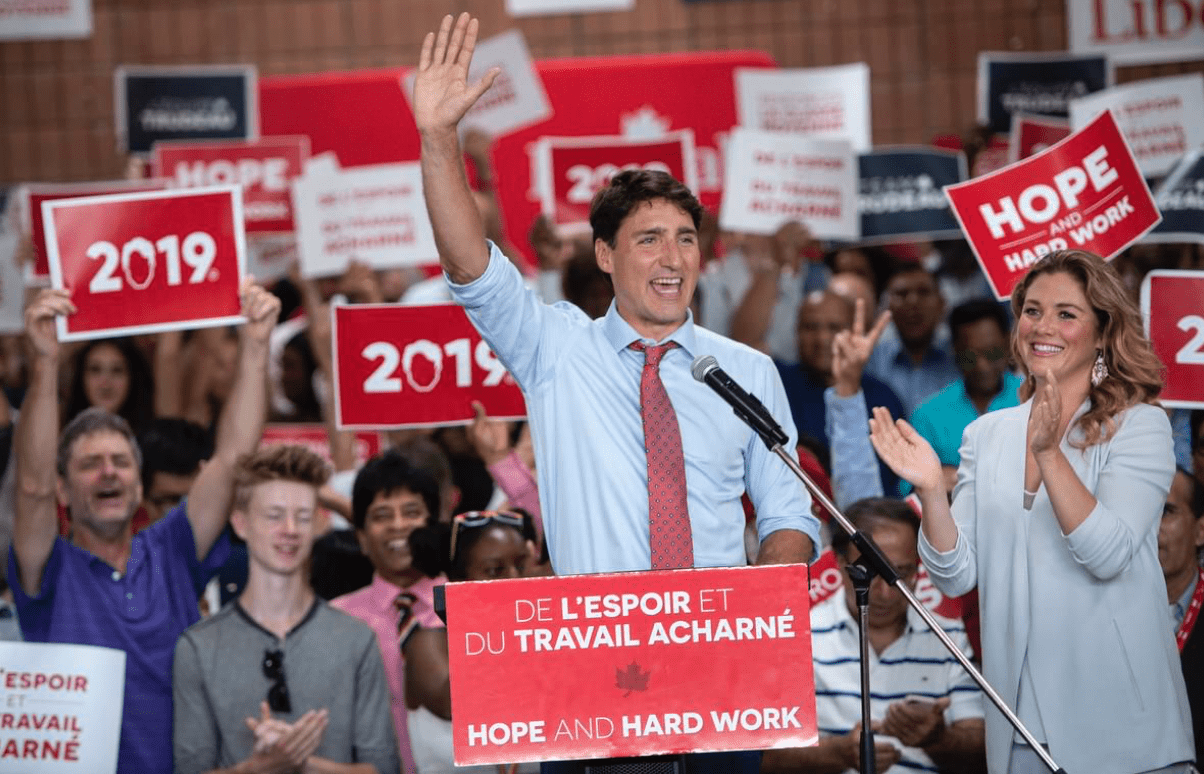It was reported on Monday that the Liberal Party had declared for themselves a "national election urgency" situation, which means that their normal rules around nomination races under the party's constitution were suspended, and that the leader's office could start making appointments to fill positions as we are weeks away from the writ period. The news boggles the mind that a national political party who had a fixed election date to look forward to, and which went out of its way to protect the nominations of its sitting MPs, could suddenly find itself blindsided by the looming election date and still not have candidates in a hundred ridings. For this to be possible, the party is either resoundingly incompetent which may very well be the case or they're astoundingly cynical in their aggressive use of the leader's powers to once again take over the functions of the grassroots membership. Either way, it's bad for democracy.
It was a mere month ago that the Samara Centre for Democracy released their scathing report on the ways in which parties have undermined the nomination process in this country. They found that a mere 17 percent of nomination candidates between 2004 and 2015 saw a competitive process, and that more often than not, the leader's office of a party would engage in shenanigans with regard to those nomination contests, pulling surprise dates and backdating them so that no new memberships could be sold in the time, and other general chicanery to get favoured candidates nominated. It's no less than the manipulation of one of the most fundamental aspects of the democratic process in this country.
Everything about this "national election urgency" situation smacks of attempted manipulation by the leader's office, never mind Justin Trudeau's pledge that they were going to have "open nominations" which they couldn't even honour, given how they allowed protected nominations in a period of a majority parliament, and there was no chance of the government falling and going to a hasty election. The Samara report points heavily to the lack of transparent rules and processes around nominations by parties, and making a sudden declaration that the nomination rules as they exist, easily manipulable as they are have been suspended in order to hasten a process that should have been completed by now, is an object lesson in just what Samara was pointing out. They have now given themselves an excuse to further meddle and make any remaining nomination contests all the more manipulable if they bother to hold them at all, as they can now directly appoint candidates, because somehow, they forgot that a fixed election date they've known about for the past four years just snuck up on them, and caught them with their pants down. It's totally plausible.
Let us not forget that the nomination process is one of the most fundamental expressions of grassroots democracy in our system. It's where ordinary voters take out memberships, join their local riding associations, and choose who will be on the ballot for them both in terms of ensuring they have the best candidate for their riding, or that the existing one is doing their job and if not, that they can hold them to account and have them replaced during the next election (which is even more important in a "safe" seat for a party). It should be inconceivable that a functioning riding association hasn't been preparing for a nomination race in advance of a fixed election date. The corollary is that these 100 ridings where nominations haven't taken place may not be functional riding associations, and should therefore not be eligible to field a candidate (with shades of 2011 when the NDP appointed the bulk of their candidates to essentially defunct riding associations in Quebec, before the "Orange Wave" happened and they suddenly found themselves elected without ever having visited their ridings before). Our system is supposed to be about the local associations feeding into the national organization, and not the other way around.
We should also recall that for the better part of 150 years, we didn't have these fixed dates and parties managed to hold nominations in order to field candidates in very short order. If the thinking is that we can't manage that today and should instead simply let the leader's office just name candidates where we have the fixed date, then are we sure we should trust any party that can't manage this process for themselves to be able to run a country? It's not a very comforting picture that they are painting for themselves.
I would also wonder how this news is being received in those ridings who have not yet held their nominations, since they should be outraged that the party office has given themselves the option to circumvent them in making that important grassroots choice (assuming, again, that they are a viable riding association capable of holding a nomination race and not a paper entity being run entirely from the party office). I would hope that this kind of heavy-handed behaviour would be protested by those members on the ground, whether that includes board resignations or otherwise, because this kind of interference should be discouraged whether they want to show their support for the party or not. It's an overreach that betrays the fundamentals of our system, and it shouldn't be allowed to go unchallenged. In a functional system, anyway, that would be the response.
Unfortunately, the parties have so hollowed themselves out so as to be the personality cult of the leader, and the Liberals changed their party constitution to both eliminate paid memberships and to disempower the grassroots in favour of centralizing power in the leader's office, that it's more than possible that many of the people in those riding associations don't understand the gravity of what is happening. It's concerning in any case, and we should be calling out the Liberals for this kind of behaviour that undermines our democratic system.
Photo Credit: CBC News






